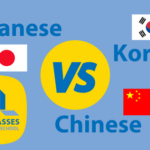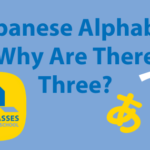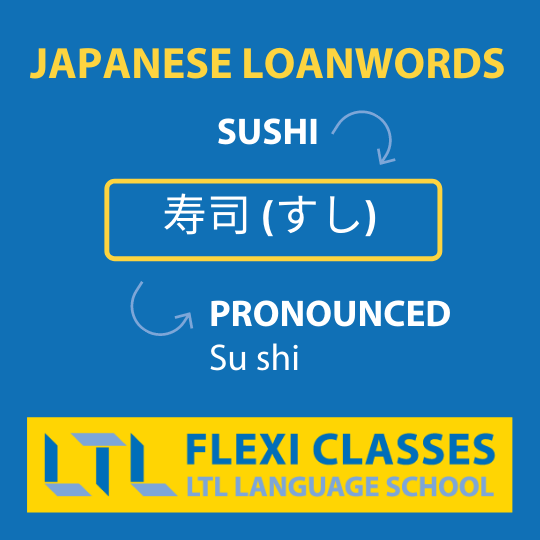Japanese Loanwords 🤩 41 You Should Learn Straight Away
Learn 41 Japanese Loanwords // Learning Languages Isn’t Always As Difficult As You Think
When you feel you are hitting a brick wall with learning a language like Japanese here’s a great tip – turn to Japanese loanwords!
Why?
Loanwords are actually a great way to boost language learning motivation because it makes you realise that despite the immeasurable differences between the likes of Japanese and English you can still find similarities!
It’s true – take the word COMMUNICATION for example. Not the easiest or most elementary word you’ll see but how does it translate in Japanese?
Communication in Japanese is コミュニケーション [Ko myu ni kē sho n]
The key here is not to look at the rather bewildering Katakana but the way it’s spoken in the [ ].

In fact, if you heard a Japanese person say the word communication you would think it’s exactly the same… and you’d be right.
This is because communication is a Japanese loanword. How cool is that!
So already, we’ve learnt a new word in Japanese and we’ve barely touched the surface yet!
Another good tip here is to look out for the script used. Remember, Japanese has three alphabets in total:
Although this might appear confusing and complex each serves a different purpose and in this instance it helps us.
Katakana is a script/alphabet solely focused on words outside of traditional Japanese – loanwords essentially.



Therefore you’ll notice all the words we go over today are in fact written in Katakana (that’s until we flip it around at the end and show words in English taken from Japanese).
This also means when you read Katakana you can be pretty confident the word has come from another language and imported into Japanese, with the help of Katakana.
With all that said, we are going to focus on, and analyse a number of Japanese loanwords today, and throw in some bonus entries at the end.
The first words we focus on all have interesting stories we wanted to share to show you the diversity of language… and then we’ll follow up with some more everyday examples.
Hopefully a read of this article will prove to you that learning Japanese is not all that scary!
Japanese Loanwords || Rollercoaster
Japanese Loanwords || Corn Dog
Japanese Loanwords || “One Piece” Dress
Japanese Loanwords || Mansion
Japanese Loanwords || Consent
Japanese Loanwords || Stapler
Japanese Loanwords || Bonus Entries
Japanese Loanwords || FAQ’s

Japanese Loanwords || Rollercoaster
TRANSLATION – ジェットコースター [Jetto kōsutā]
Interesting one to start off here.
“Jet” expresses something extremely fast and strong.
“Coaster” is like “roller coaster”… yes, that’s it!
ジェットコースター simply means a roller coaster.
In fact, some Japanese people actually call it a “roller coaster” as well, but “jet coaster” sounds faster and more thrilling, so we changed it!
For Japanese people who do not know the building blocks of English, calling something by its visual and physical features is a better way to understand the word.
SIDE NOTE – The word Jet in English translates to ジェット[Jetto] so that’s two loanwords for the price of one to start you off!
Japanese Loanwords || Corn Dog
TRANSLATION – アメリカンドッグ [Amerikan doggu]
One for our American friends here.
Although this might strike you as the translation for Hot Dog you’d actually be wrong.
In fact, this means “corn dog” which is usually thought as a kind of hotdog in western countries for Japanese.
Originally, corn dogs were made with corn flour, but Japanese ones are usually made with regular white flour.
Because something which does not contain corn cannot be called a “corn dog”, the Japanese call it an “American dog” as it is not a hot dog, but still from the United States.
INTERESTINGLY – based on this Japanese loanword you’d guess the word for Dog in Japanese was ドッグ [doggu] but you’d actually be wrong!
Dog in Japanese is 犬 [Inu]. This is written in Kanji, and for those of you who know Chinese, this is the same character (the traditional version that is) for Dog as in written Chinese.

Japanese vs Korean vs Chinese | Which Is Really The Hardest?
Thinking about learning an East Asian language and don’t know which one to go for? Japanese vs Korean vs Chinese – it’s a tough choice right?!
Japanese Loanwords || “One Piece” Dress
TRANSLATION – ワンピース [Wanpīsu]
OK, first things first. This is not related to the famous Japanese Manga called One Piece!

Just putting that out there because it’s a hugely popular Manga in Japan and further afield.
This is actually related to clothing and those clever clogs amongst you can probably guess what this means.
“One Piece” essentially refers to an all-in-one dress – one piece! No need for tops, trousers and skirts.
ANOTHER BONUS LOANWORD – the word for Skirt in Japanese is スカート [Sukāto] – very, very similar to the spoken English version!
Japanese loanwords really are everywhere!
Japanese Loanwords || Mansion
TRANSLATION – マンション [Manshon]
The spoken Japanese for マンション is virtually identical to English but it’s worth noting the meaning is not.
Of course in English a mansion is a dream place to live – a huge place that are occupied generally by people with plenty of money!
A Japanese “Mansion” is more like an “apartment” however.

In Japanese an “apartment” means to live somewhere with several floors (like in English), but a “mansion” is one of those apartments on a higher floor level.
As a matter of fact, there is not a clear definition about the difference of an “apartment” and “mansion” in Japanese, but it is clear that western-styled buildings with a high number of levels gave a strong impact on Japanese people compared with many Japanese traditional buildings with low levels.
It is believed that マンション [Manshon] enjoyed usage in Japanese during the latter half of the 1950s, and was originally used to speak of luxury / high-density residential development projects.
BONUS – you guessed it, Apartment is also quite similar in Japanese… アパート[Apāto]
Japanese Loanwords || Consent
TRANSLATION – コンセント [Konsento]
This is a curious example that does not translate simply to “consent” but actually to “electrical outlet”.
I can hear the collective gasps and awkward silence so let’s explain this one!
Going back around 100 years or so these electrical outlets were circular and therefore known as “concentric plugs”.
For a more detailed explanation I quite liked this one:
“Some British sockets from around 1900 consisted of concentric (co-axial) contacts, unlike the pinned ones in use today.
These were in use in the Meiji period (1868-1912) of Japan, and the abbreviated form konsento became the accepted way to describe any kind of electrical outlet.
This may have been from a split of konsento puragu into konsento to describe the outlet and puragu to describe the plug.”
Source here
Interesting example to say the least!

How to Learn Hiragana (Quickly) // 7 Terrific Tips To Success
How to Learn Hiragana? It might seem difficult but Hiragana can be understood within a few hours. Follow these tips for success and start reading Hiragana.
Japanese Loanwords || Stapler
TRANSLATION – ホッチキス [Hotchikisu]
This is another interesting example that has a cool backstory to follow.
You’ll notice the pronunciation of the Japanese and English are nothing alike here so how can this be a Japanese loanword?
Stick with us!
In 1903, the first stapler was imported to Japan from the United States, and that stapler was called “Hotchkiss No.1” by E.H. Hotchkiss.
Even though this word does not express any features of the stapler itself, the sound of “Hotchkiss” was well-accepted in Japan with its usefulness.
So in a nutshell… the Stapler in Japanese is not named after the English word, but after the name of the brand of the first import way back in 1903!
And who said language wasn’t fascinating!
In short, the creativity of Japanese people is often way beyond what English speakers imagine.
There is a wide range of Japanese-English loan words, some of them are al most identical in sound, but also some of them are quite unique.
Above we have tried to give you some of the more curious, less obvious examples to show you some of the back stories that are involved which really invoke a lot of interest from foreign learners of Japanese.
The important thing is that those loan words reflect the Japanese way of imagining things from outside their culture.
Learning Japanese loanwords as you go absolutely helps you to communicate in Japanese smoothly.

The 3 Japanese Alphabets // Discover Hiragana, Katakana and Kanji
The Japanese Alphabet is not singular. In fact there are 3 alphabets in Japanese! Hiragana, Katakana and Kanji. We teach you why and how to use them.
Japanese Loanwords || BONUS ENTRIES

As stated, the examples so far list some more curious examples but there are some much more obvious examples as well, and it’s these we want to show you now also.
These words you’ll find more commonly used in day to day speak and virtually all of them sound pretty similar to the English equivalent.
Let’s take a look…
- Air Con | エアコン [Eakon]
- Bar | バー [Bā]
- Beer | ビール [Bīru]
- Butter | バター [Batā]
- Calendar | カレンダー [Karendā]
- Camera | カメラ [Kamera]
- Elevator | エレベーター [Erebētā]
- Glass | ガラス [Garasu]
- Ice Cream | アイスクリーム [Aisukurīmu]
- Image | イメージ [Imēji]
- Juice | ジュース [jūsu]
- Story | ストーリー [Sutōrī]
- Supermarket | スーパー [Sūpā]
- TV | テレビ [Terebi]



And we’ve not even touched on some of the countries as well, which are really quite easy to learn in many instances, like these ones:

- America | アメリカ [Amerika
- Italy | イタリア [Itaria]
- Holland / The Netherlands | オランダ [Oranda]
- Canada | カナダ [Kanada]
- Spain | スペイン [Supein]
- Germany | ドイツ [Doitsu]
- France | フランス [Furansu]
We must also remember it works both ways.
English has pinched a number of words from Japanese that we use day to day which include:
- Dojo | 道場 (どうじょう)
- Emoji | 絵文字 (えもじ)
- Judo | 柔道 (じゅうどう)
- Karaoke | カラオケ (からおけ)
- Manga | 漫画 (まんが)
- Ramen | ラーメン (らーめん)
- Sumo | 相撲 (すもう)
- Sushi | 寿司 (すし)
- Teriyaki | 照り焼き (てりやき)
- Tsunami | 津波 (つなみ)
- Wasabi | 山葵 (わさび)
It’s easy to forget where words come from when they become so embedded into a culture. Loanwords are truly everywhere in all languages across the world


Hopefully this short article proves that learning any language doesn’t have to be as intimidating as it looks.
Sure, everything appears different on paper but sometimes, you get that lovely surprise when speaking, that words really can travel the world!
If you like getting to know loanwords like we do… good, because we’ve got a few of other additions also!
- Vietlish – Learn Vietnamese Loanwords
- Konglish – Learn Korean Loanwords
- Loanwords in Mandarin – Learn the Chinese Loanwords
- Korean Words in the English Dictionary – Check out 26 New words in Korean that made it into the Collins English Dictionary!
- Russian – 20+ words in Russian that you already know
Are there anymore Japanese loanwords you want to share? Drop us a comment below and share your favourites!
Japanese Loanwords || FAQs
Why is the Stapler named after Hotchkiss in Japanese?
Stapler in Japanese is not named after the English word but after the name of the brand of the first import way back in 1903!
In 1903, the first stapler was imported to Japan from the United States, and that stapler was called “Hotchkiss No.1” by E.H. Hotchkiss.
Which Japanese script is used for loanwords?
Katakana is used for loanwords in Japanese and not Hiragana or Kanji.
How do you say “communication” in Japanese?
It’s remarkably similar to the English, in fact, this is an example of a Japanese loanword.
Communication in Japanese is コミュニケーション [Ko myu ni kē sho n]
How do you say “supermarket” in Japanese?
It’s nice and simple – スーパー [Suupaa].
How do you say “America” in Japanese?
Exactly the same as the English!
アメリカ人 [Amerika]
How do you say “image” in Japanese?
The same as the English, almost anyway!
イメージ [Imeeji]
Want More From LTL?
WANT TO LEARN JAPANESE? Check out our online Japanese courses here.
We offer a 7-day free trial to all new students where you can study 24/7.
What about studying Japanese in Japan instead? We’ve got your back. Our Japanese courses in Tokyo can either be taken in small groups of no more than 5 students or individually for a more tailored experience.
We even offer incredible homestay experiences in Tokyo as well.
Come and be a part of this amazing community.










2 comments
Super motivating!
Love to hear it